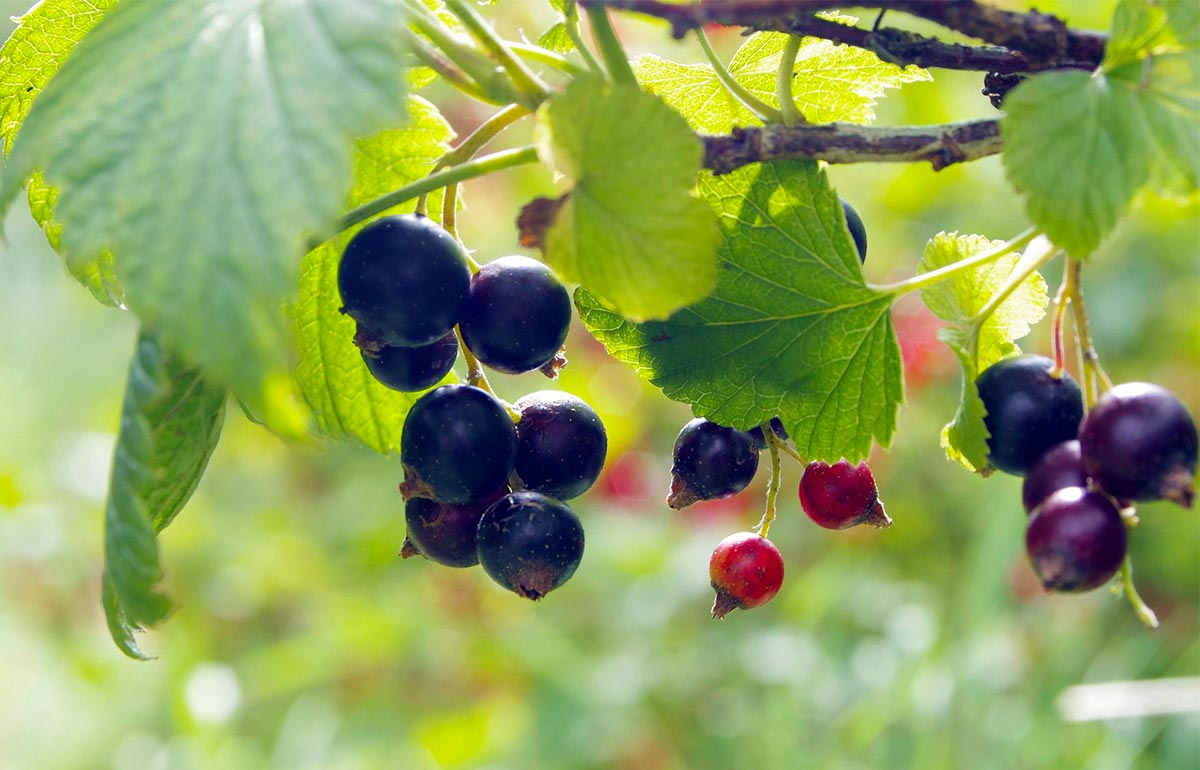The quest for the next big thing in the world of superfruits is a never-ending saga. After the grand entrances of Acai and Maqui berries, market experts are now placing their bets on the Cassis berry. This dark, unassuming fruit is poised to tantalize taste buds and quench America's thirst for innovative and potent additions to the already diverse superfruit landscape. The Cassis berry, with its rich history and impressive nutritional profile, is ready to take center stage.
A History of Intrigue: The Cassis Berry's American Journey
The Cassis berry's history in America is a tale of intrigue and rediscovery. In the early 1900s, the cultivation of Cassis berrieaminos faced an unexpected ban in the United States. Despite their popularity at the time, these nutrient-rich berries were mistakenly deemed a threat to the logging industry. This misconception led to a near century-long absence from American agriculture. However, in 2003, New York became the first state to rectify this historical wrong, lifting the ban and paving the way for other states to follow suit. This period of prohibition has meant that Cassis berries are not as widely known in the United States as they are in Europe, where they enjoy widespread popularity and a well-established reputation. Now, Americans are finally beginning to rediscover the remarkable qualities of this once-forbidden fruit.
The Cassis Berry: A Closer Look
The Cassis berry, also known as the Black Currant (Ribes nigrum), is a native shrub of Northern Europe and Northern Asia. These berries grow in clusters and possess a thin skin that encases a gelatinous, nutrient-dense green pulp. Their flavor profile is a unique blend of sweet and astringent notes, often compared to that of black grapes. The deep purple outer coloring might initially lead one to believe it simply mirrors other dark berries like Acai or Maqui, but this would be a significant underestimation. The Cassis berry’s unassuming appearance belies a powerhouse of nutrients that sets it apart in the superfruit arena. The very composition of the berry, from its skin to its pulp, contributes to its remarkable nutritional value.
A Nutritional Powerhouse: Unveiling the Cassis Berry's Secrets
Beneath its ordinary exterior, the Cassis berry boasts an extraordinary array of nutrients. It is packed with a wide assortment of B vitamins, vitamin C, and essential minerals including calcium, iron, magnesium, phosphorus, potassium, and zinc. Furthermore, it provides a substantial amount of fiber, amino acids, and an essential fatty acid known as gamma linolenic acid (GLA). Just 100 grams of Cassis berries delivers an astounding 300 percent of the recommended daily allowance (RDA) of vitamin C. This impressive vitamin C content led to the use of Cassis berries as a substitute for oranges during World War II, boasting a vitamin C potency four times greater than that of oranges. Rich in anthocyanins and possessing twice the antioxidant power of blueberries, the Cassis berry is a serious contender for the next superfruit crown. This impressive nutritional profile makes it a valuable addition to any diet.
Cassis vs. Acai and Maqui: A Comparative Analysis
When comparing the Cassis berry to other popular superfruits like Acai and Maqui, several key distinctions emerge. In terms of taste, Cassis generally receives higher praise. Nutritionally, all three berries offer a significant dose of essential vitamins, minerals, amino acids, and fiber (100 grams of Cassis berries provide approximately 30 percent of the RDA of dietary fiber). However, Cassis and Acai stand out for their content of essential fatty acids, which contribute to heart health. While Maqui currently holds the top spot in antioxidant potency, the antioxidant levels of Cassis and Acai are still remarkably high, surpassing many other superfruits. Furthermore, Cassis has a significant advantage in terms of scientific research, with extensive studies already conducted in Europe and Asia. This wealth of research provides a solid foundation for understanding the health benefits of Cassis berries.
Scientific Backing and Traditional Uses: The Cassis Berry's Proven Benefits
Preliminary scientific data reveals that Cassis berries offer a range of health benefits. They support bone health with an ideal calcium and magnesium ratio of 2:1. Specific anthocyanins found in Cassis berries have demonstrated positive effects on heart and eye health. The berries also exhibit anti-inflammatory and immune-boosting properties. Notably, Cassis berries may offer unique benefits for brain health, with anthocyanins believed to act as neuroprotective agents. Traditionally, Cassis berries have been used as a detoxifier, cleansing tissues of oxidative stress and stimulating liver function. They have also been used to alleviate menopausal symptoms and improve venous circulation. Even the leaves of the Cassis berry possess medicinal properties and are used in herbal tea preparations. This combination of traditional use and modern scientific research further strengthens the case for the Cassis berry's health benefits.
The Future of Cassis: A Berry on the Rise
Datamonitor has observed a surge in new products incorporating Cassis berries since the lifting of the cultivation ban. This increasing demand is closely linked to the growing consumer interest in antioxidant-rich superfruits. However, due to its century-long absence from the American market, awareness of the Cassis berry remains relatively low. Increased public awareness campaigns and educational materials highlighting the berry's rich health benefits could significantly propel its popularity. The Cassis berry market holds immense growth potential. Its versatility allows it to be used as a standalone supplement or combined with other ingredients in various forms, including capsules, tablets, powders, and liquids. This versatility creates numerous opportunities for manufacturers to capitalize on the rising demand for this exceptional superfruit. The future of the Cassis berry looks bright, with the potential to become a staple in the world of health and wellness.
The Cassis berry's unique combination of historical intrigue, impressive nutritional profile, and promising scientific research positions it as a true contender in the superfruit market. As awareness of its benefits grows, this once-forgotten berry is poised to become a household name, offering consumers a delicious and potent way to enhance their health and well-being. The rediscovery of the Cassis berry is a testament to the power of nature and the ongoing search for innovative ways to improve our health.
The versatility of the Cassis berry extends beyond its nutritional benefits. Its distinct flavor profile makes it a desirable ingredient in a variety of culinary applications, from jams and juices to desserts and savory dishes. This culinary versatility further enhances its appeal to consumers seeking both health benefits and enjoyable taste experiences. The Cassis berry's potential to become a culinary staple adds another dimension to its growing popularity.
It is important to note that while the Cassis berry offers numerous potential health benefits, it is always advisable to consult with a healthcare professional before making any significant changes to your diet or supplement regimen. This is especially important for individuals with existing health conditions or those taking medications. A healthcare professional can provide personalized advice based on individual needs and circumstances.
In conclusion, the Cassis berry is a remarkable superfruit with a rich history and a promising future. Its unique combination of nutritional value, scientific backing, and culinary versatility positions it as a true contender in the health and wellness market. As awareness of its benefits continues to grow, the Cassis berry is poised to become a household name, offering consumers a delicious and effective way to enhance their health and well-being.
1McGhie, T. K., & Walton, E. F. (2007). The nutritional and health attributes of blackcurrants. *Advances in Food and Nutrition Research*, *52*, 205-240.
2Matsumoto, H., Inayoshi, M., Terahara, N., Tsuruma, K., Nagai, H., & Ohguro, H. (2005). Preventive effects of black currant anthocyanin intake on the development of diabetic retinopathy in mice. *Journal of Agricultural and Food Chemistry*, *53*(16), 6284-6287.
3Du, C. T., Francis, J. A., & McGhie, T. K. (2010). Antioxidant capacity and anti-inflammatory effects of New Zealand blackcurrant products. *Journal of Functional Foods*, *2*(4), 229-237.
4Nomi, Y., Iwasaki, M., Matsumoto, H., & Ohguro, H. (2005). Black currant anthocyanins suppress proliferation of human cancer cells. *Journal of Agricultural and Food Chemistry*, *53*(10), 3958-3961.
5Prior, R. L., Cao, G., Martin, A., Sofic, E., McEwen, J., O’Brien, C., ... & Grodner, M. (1998). Antioxidant capacity as influenced by total phenolic and anthocyanin content, maturity, and variety of Vaccinium species. *Journal of Agricultural and Food Chemistry*, *46*(7), 2686-2693.













